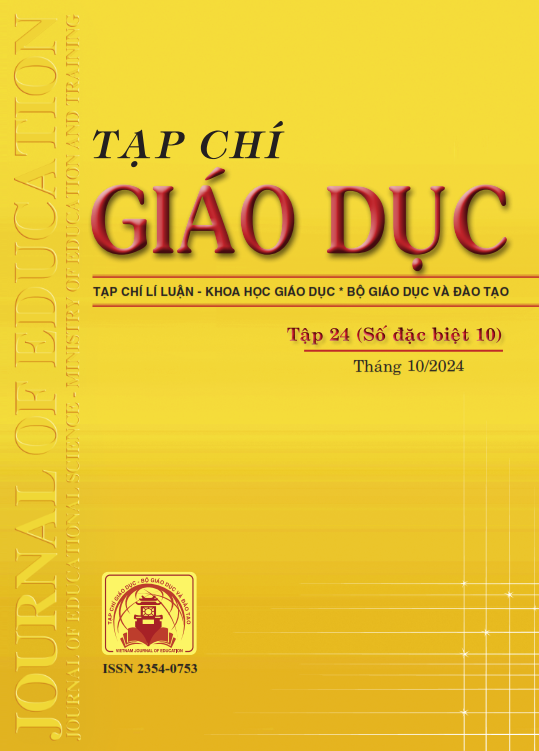Khả năng tư duy số của học sinh trong bối cảnh chuyển đổi số: Nghiên cứu tại một số trường trung học phổ thông thành phố Biên Hòa, tỉnh Đồng Nai
Tóm tắt
In the digital age, digital thinking is an essential skill that helps students adapt to rapid changes in technology and meet the demands of modern society. Therefore, assessing the digital thinking competence of high school students is a necessary requirement to propose solutions to improve this skill. A survey of 286 high school students in Bien Hoa city showed that their digital awareness and thinking skills are still limited. Most students only have basic technology skills and lack the competence to apply technology to solve complex problems. To improve digital thinking skills, cooperation between family, school and society is very important in creating conditions and supporting students to access and use technology effectively.
Tài liệu tham khảo
Bilyalova, A. A., Salimova, D. A., & Zelenina, T. T. (2020). Digital Transformation in Education. In book: Integrated Science in Digital Age (pp. 265-276). http://doi/10.1007/978-3-030-22493-6_24
Hess, T., Matt, C., Benlian, A., & Wiesböck, F. (2016). Options for Formulating a Digital Transformation Strategy. MIS Quarterly Executive, 15(2), 123-139.
Li, L., Su, F., Zhang, W., & Mao, J. Y. (2017). Digital transformation by SME entrepreneurs: A capability perspective. Information Systems Journal, 27(4), 51-79.
Mai Thị Quỳnh Như (2022). Tư duy kinh doanh trong giai đoạn chuyển đổi số của các doanh nghiệp Việt Nam. Tạp chí Tài chính, kì 2 tháng 4 (775), 32-34.
Neumann, M. M. (2016). Young children's use of touch screen tablets for writing and reading at home: Relationships with emergent literacy. Computers & Education, 97, 61-68. https://doi.org/10.1016/j.compedu.2016.02.013
Petko, D. (2012). Teachers' pedagogical beliefs and their use of digital media in classrooms: Sharpening the focus of the “will, skill, tool” model and integrating teachers' constructivist orientations. Computers & Education, 58(4), 1351-1360. https://doi.org/10.1016/j.compedu.2011.12.013
Thủ tướng Chính phủ (2020). Quyết định số 749/QĐ-TTg ngày 03/6/2020 phê duyệt “Chương trình Chuyển đổi số quốc gia đến năm 2025, định hướng đến năm 2030”.
Thủ tướng Chính phủ (2021). Quyết định số 942/QĐ-TTg ngày 15/6/2021 phê duyệt Chiến lược phát triến Chính phủ điện tử hướng tới Chính phủ số giai đoạn 2021-2025, định hướng đến 2030.
Vekiri, I., & Chronaki, A. (2008). Gender issues in technology use: Perceived social support, computer self-efficacy and value beliefs, and computer use beyond school. Computers & Education, 51(3), 1392-1404. https://doi.org/10.1016/j.compedu.2008.01.003
Wang, Q., Myers, M. D., & Sundaram, D. (2013). Digital natives and digital immigrants: Towards a model of digital fluency. Business & Information Systems Engineering, 5(6), 409-419. https://doi.org/10.1007/s12599-013-0296-y
Đã Xuất bản
Cách trích dẫn
Số
Chuyên mục
Giấy phép

Tác phẩm này được cấp phép theo Ghi nhận tác giả của Creative Commons Giấy phép quốc tế 4.0 .












